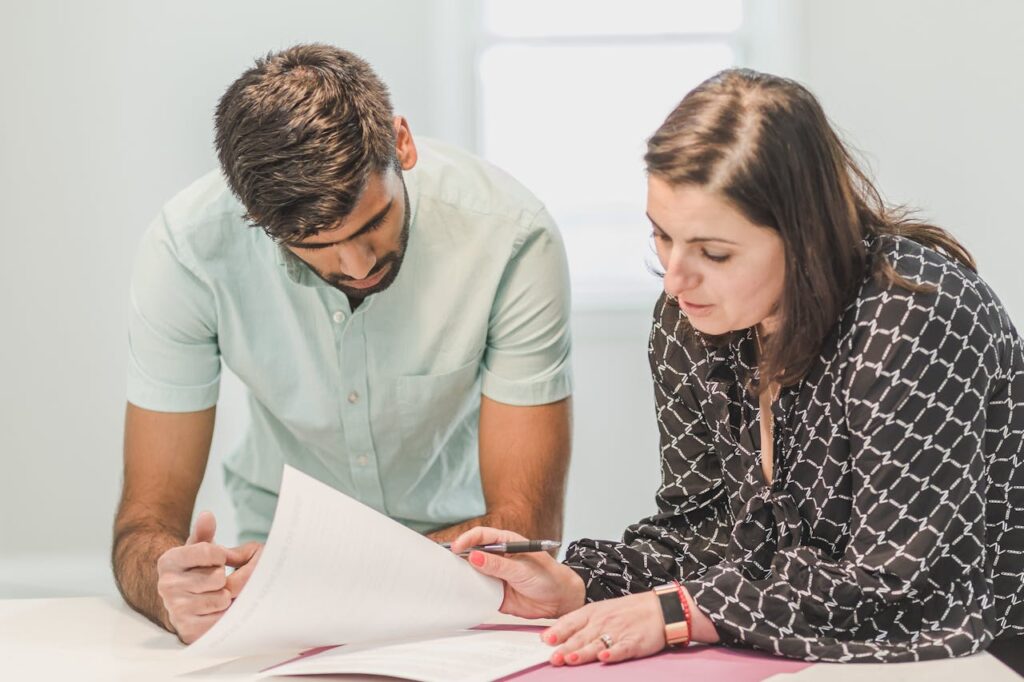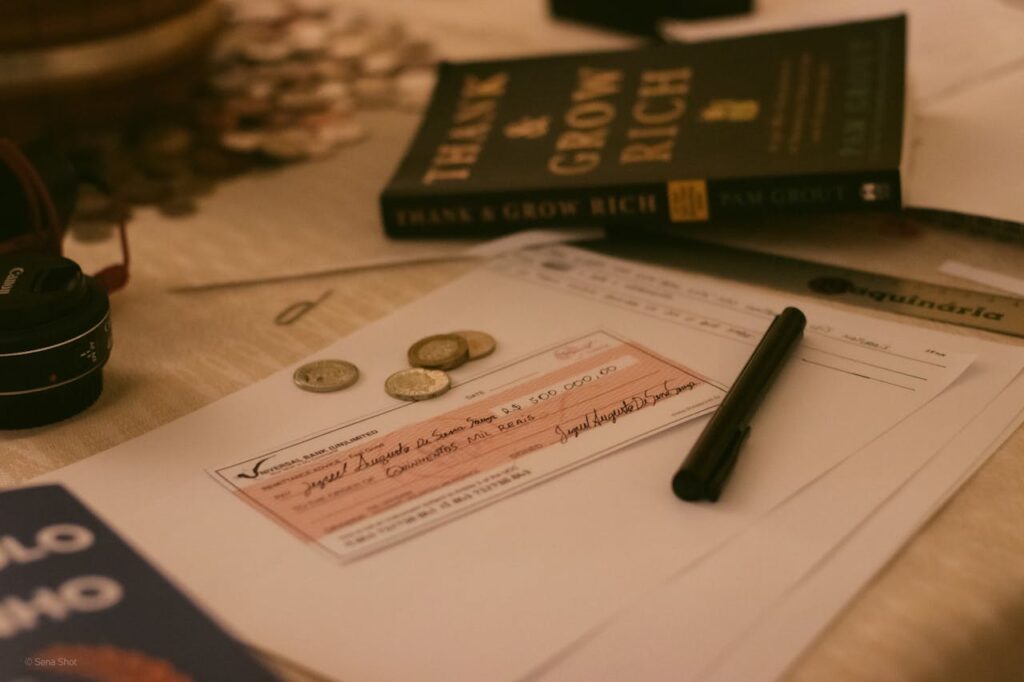Buying a new home is exciting, but it also comes with a series of new responsibilities. Whether you’re a repeat homebuyer or part of the 24% of first-time buyers entering the market in 2024, the timing of your first mortgage payment is something you should know.
With average closing costs ranging between 2-6% of the loan amount, paying up extra cash for your first mortgage payment may feel daunting. Knowing when your first mortgage payment is will help you manage your budget more effectively. Typically, your first monthly payment isn’t due right after closing but rather falls a month or more later, depending on the closing date.
In this guide, we’ll be covering what to know about timing, payment schedules, and what to expect in those first months as a homeowner.
Understanding Mortgage Payment Timing Basics
Having a solid understanding of mortgage payment timing is key, especially since mortgage payments are usually made “in arrears.” This means that each payment covers the interest from the previous month.
For example, if you close on your home in January, your first payment might not be due until March, which covers the interest accrued in February. The delayed payment can be a bit surprising for new buyers who expect payments to start right away.
At closing, you’ll pay a few costs upfront, like interest from your closing date to the end of the month, plus closing fees and taxes. After these initial costs, your regular monthly payments kick in, giving you a set payment schedule to plan your budget around.
When Is Your First Mortgage Payment Due After Closing?
Your first mortgage payment is usually due at least one full month after your close, giving you some breathing room to settle into your new home. This means that if you close on your mortgage in May, your first payment won’t typically be due until July 1st, covering the interest accrued in June.
Closing costs can feel like a big financial hit, so this gap between closing and your first payment allows you to adjust financially without an immediate payment. Most lenders offer a 15-day grace period for monthly payments but not all. Payments received within this period are usually not considered late but it depends on the lenders requirements and if they are offered. Late fees typically apply after the grace period ends.

What Affects When Your First Mortgage Payment is Due?
When your first mortgage payment is due can vary based on a few factors, including:
- Closing Date: Closing early in the month often gives you a longer gap before the first payment, while closing near the end of the month may mean your first payment is due sooner.
- Mortgage Type: Different types of loans can come with variations in payment schedules. For example, government-backed loans, like FHA loans, may have slightly different timing for when the first payment is due.
- Lender Practices: Each lender may have unique policies on when your first mortgage payment is scheduled, so it’s a good idea to ask your lender about their practices to avoid any surprises. Keep in mind that private mortgage lenders might have different payment date requirements than banks – it’s important to clarify nonetheless.
Prepaid Interest and How It Affects Your First Payment
Prepaid interest is an upfront cost that covers the interest from your closing date to the end of that month. It’s calculated based on the number of days remaining in that month after closing.
So, if you close mid-month, you’ll prepay interest for about 15 days, which is included in your closing costs. Then, the interest on your first official mortgage payment will start accruing on the 1st of the next month. If you close near the end of the month, you’ll only owe a few days’ worth of prepaid interest, which means a smaller amount added to your closing costs. For example, closing on the 15th means you’d prepay 15 days of interest, but closing on the 28th requires just two days.
The upfront prepaid interest adjusts your mortgage schedule to start on the first of each month, making it easier to budget from that point forward.
Managing Your Mortgage Payments
Preparing for Your First Mortgage Payment
Preparing for your first mortgage payment can feel a bit overwhelming, especially after paying a good chunk towards closing costs. But it doesn’t have to be stressful – getting organized ahead of time can make it more manageable.
Though we can’t give financial advice, we’d suggest you start by making a budget that prioritizes your mortgage payment and other “needs,” so you know exactly where your money is going each month. If this isn’t your first home purchase or you were previously renting, budgeting your new mortgage payment will be similar to budgeting your previous mortgage or rent payment.
It’s also smart to set aside a portion of your income in a savings account as a cushion to cover unexpected costs or help if you ever need to bridge a gap in income. To get started on a savings cushion or emergency fund, look for areas where you can cut back, like canceling any unused subscriptions or reducing dining out. Small adjustments like these can free up cash and help you feel more confident when that first mortgage bill arrives.
Be sure to speak with your financial advisor about financial planning options if you are interested in tips and resources to help you better prepare for your first mortgage payment.

How to Make Your Mortgage Payments
When it comes to paying your mortgage, you have a few convenient options to choose from. Most people find that making payments online is the easiest method for them. Lenders usually have online portals where you can quickly check your balance, make payments, and even set up autopay to avoid missing due dates.
If you prefer, you can also make your mortgage payments over the phone. Depending on what the lender has set up, you might have the option to speak with a representative or use an automated system. Be sure to ask your lender what your options are.
Lastly, if you’re looking for a more traditional approach, mailing a check each month is still an option with most lenders. Whichever way you choose, making on-time payments is essential to keeping your mortgage and credit score in good standing.
What Happens If You Miss a Mortgage Payment?
Missing a mortgage payment can have serious consequences, so it’s important to stay on top of due dates. Most lenders offer a 15-day grace period as mentioned above, but if you miss this window, you could face late fees and penalties that add up over time.
If you’re more than 30 days late on your payment, your lender can report the missed payment to credit bureaus, which can negatively impact your credit score. In fact, delinquent payments can stay on your credit report for up to seven years. With 3.97% of mortgages delinquent in the U.S. as of mid-2024, it’s a reminder of how common these setbacks can be.
What to Do If You Can’t Make a Mortgage Payment?
If you’re struggling to make a mortgage payment, the best thing you can do is reach out to your lender as soon as possible to explain the situation. Lenders are often willing to work with you if you’re proactive about your financial challenges, and they might offer options to help you avoid default.
For example, if you’re dealing with a temporary hardship like losing a job or medical issues, ask about mortgage forbearance, which allows you to pause or reduce payments for a few months. The key is to communicate early and explore any assistance programs your lender may have, so you have a plan in place and avoid further stress down the road.
If you are experiencing financial issues, be sure to reach out to your financial advisor as well for advice and guidance on the matter.

Key Takeaways From Making Your First Mortgage Payment
Knowing when your first mortgage payment is due can make a big difference in feeling prepared and confident as a new homeowner. With a clear understanding of payment timing, prepaid interest, and setting up your budget, you’re set up for a smoother transition into homeownership.
Remember, your lender is there to help answer questions and guide you along the way and so is your financial advisor.
If you’re looking for a mortgage partner who understands that each individual’s financial situation is unique, Defy Mortgage is here to help. Book a call with us today to learn more about your flexible mortgage solutions designed just for you.
FAQs on Your First Mortgage Payment:
- When exactly is my first mortgage payment due after closing?
This is among many of the common mortgage questions asked by many buyers. Your first mortgage payment is typically due one full month after the month in which you close. For example, if you close in May, your first payment would likely be due on July 1st.
- Why is there usually a delay between closing and the first payment?
Mortgage payments are made in arrears, so the first payment is delayed to cover the interest that accrues in the month after your closing date. This delay allows you to start your payments with a full monthly cycle.
- How does my closing date affect my first mortgage payment due date?
The day you close determines how much prepaid interest you’ll owe and when your first payment is due, with earlier closings generally resulting in a longer gap until the first payment. If you close toward the end of the month, you’ll likely owe less prepaid interest and begin payments sooner.
- What is prepaid interest, and why do I have to pay it at closing?
Prepaid interest covers the cost of interest from your closing date until the end of that month, aligning your payments with the beginning of the next full month.
- Can the first payment due date be changed if I request it?
In most cases, the first payment date is set based on the closing date, and lenders are unlikely to adjust it. However, you can contact your lender to discuss possible options if you have a specific need.
- What happens if I miss my first payment?
If you miss your first payment and don’t make it within the grace period, you may incur late fees, and the lender could report it to credit bureaus after 30 days.
- Is your first mortgage payment higher than other monthly mortgage payments?
No, the first mortgage payment is usually the same as your regular monthly payment, covering interest and any principal owed.




